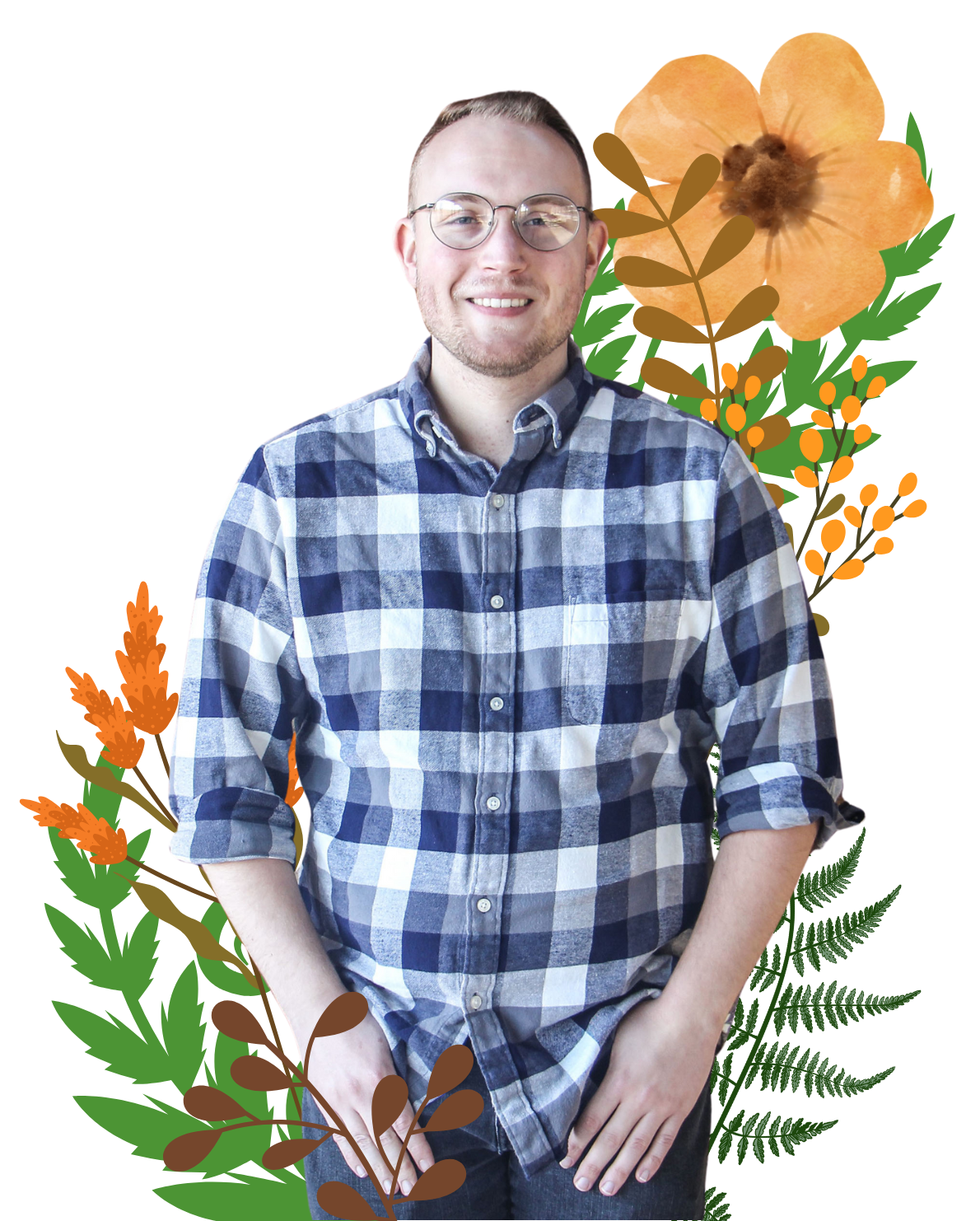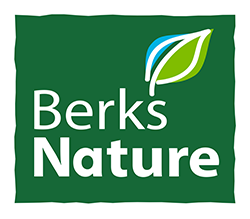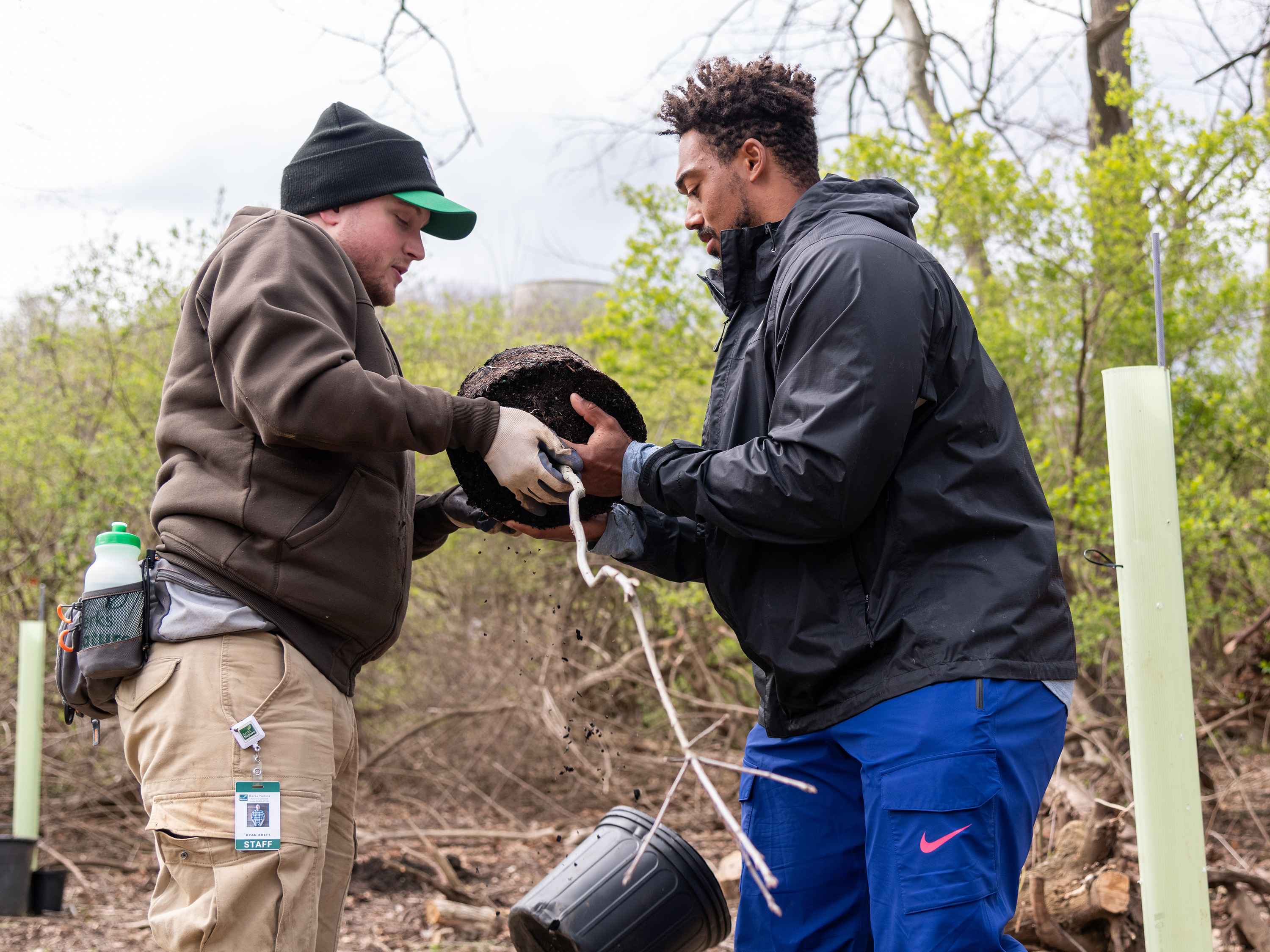When I received notice that I was to become the next member of Berks Nature’s team in November of 2023, I was overjoyed; I had finally done it – I made it!
After long last, I had broken into the field I had spent so long trekking towards, a job where I could finally be the change I had long envisioned for this world.
How long? Well, to answer that we’ll have to go back in time a bit.

In 2016, I enrolled in Albright College’s Environmental Science program. I was fortunate enough during my four-year undergraduate to work with two wonderful mentors, now friends: David Osgood and Stephen Mech. I believe that much of what I hold dear about the environment, data analysis, experimental design, and (most importantly) ethics was informed by my experience learning from and working with these two keystone individuals.
I immersed myself in the academics of our environment, receiving three student research grants and traveling abroad to Costa Rica to study the way wildlife communities respond to environmental changes. The nature of these changes ranged from human recreation and management of open space habitats, climate-induced effects on species home-ranges, and climate resiliency of plant communities following record storm and disturbance events.
As I entered my final semester in the spring of 2020, I was eager to apply my skills in the real-world and start a career as a state forester, or a wildlife biologist, maybe a watershed engineer or even an agricultural specialist! Of course now, we all know that 2020 would be an unprecedented year, especially for a greenhorn ecologist entering the job market.
April transitioned to May and I completed my final semester of college remotely, searching PA job boards, Indeed, and Glassdoor in the hours between virtual lectures. I received my degree in the mail without attending any graduation ceremony (which was fine by me, I dislike crowds, itchy robes, and uncomfortable chairs).
As far as I was concerned, the Pandemic gave me the time to reflect on my education and focus on starting a career as an Environmental Scientist! That is what I spent the past four years working towards, after all.
Complacency eventually turned to disappointment as the summer wore on and more and more dream employers either ghosted me or replied with the all-too-generic response:
“…due to the global conditions, we are not hiring at this time, but we will keep your resume and cover letter on file and contact you if a suitable position is available!”
The reality of my fruitless searching set in; it was time to cast a broader net and I started applying for any position which utilized my degree.
By the end of August 2020, I was hired! Not as wildlife biologist, watershed engineer, or agricultural specialist, but as a microbiologist working for a laboratory that specializes in water and soils testing for environmental compliance.
My position, while important, was menial. I was responsible for testing water and soil samples and then comparing these results to state and federal requirements to determine their compliance.
I wasn’t changing anything. My work felt inconsequential. This was not where I wanted to be for very long.
My undergraduate ambitions returned; I could hear the call of nature ringing once more in my ears. It was time to give my dream a second chance.
That second chance began in December 2023 when I began my new employment under Berks Nature as a Land Protection and Stewardship Specialist.
In this role, I work with private landowners and municipal partners to establish conservation easements or implement Best Management Practices on critically undeveloped lands: those natural parts of our landscape that mitigate or ward against pollution, stormwater runoff damage, and erosion while also promoting climate resiliency and green infrastructure.
No longer confined to the lab, I spend my days visiting permanently protected parcels, hiking and stewarding our nature preserves, and planting native trees along creeks and across city parks. All the while meeting new people – new partners in conservation – and sharing with them the vital role our county’s natural resources in maintaining our standard of living.
My role at Berks Nature is quite different, those three years of my life devoted to learning microbiological and chemical analyses were not wasted. I learned much about the regulation of water and soils, including the NPDES pollutant discharge regulations and the municipal stormwater management requirements (known as MS4). This technical knowledge is quite useful to me and lends a unique perspective to my work at Berks Nature.
But when I first started with Berks Nature, these lab experiences were less applicable; I was as green as rookies come. My knowledge of native species, their traits, services, preferred environments, and stewardship needs were minimal. Three years of soil sampling and water testing didn’t help me answer questions like: What’s your opinion on how I should control these invasive species? What should I plant in this field to return it to a meadow? Or how do I diversify the forest on my property?
I hardly had answers that aroused much confidence in those first three months with Berks Nature. As I reflect now, on the threshold of my first anniversary in this role, I can admit that at times I felt like a fraud.
But in this first full year, I have gained confidence and fostered new skillsets, learning through immersion, from my peers and colleagues, and by engaging with the landowners and partner organizations who have far more collective experience than I could ever hope to achieve in one lifetime.
I have grown, with much more growing and learning left to me. But with confidence I can say that since 2020, I have surely become a better scientist in service of nature.

